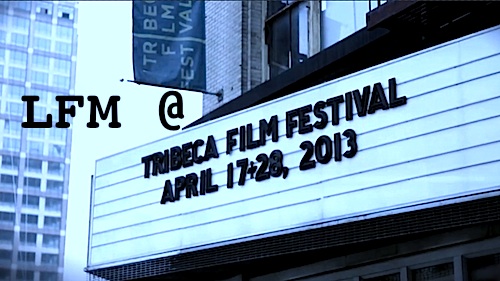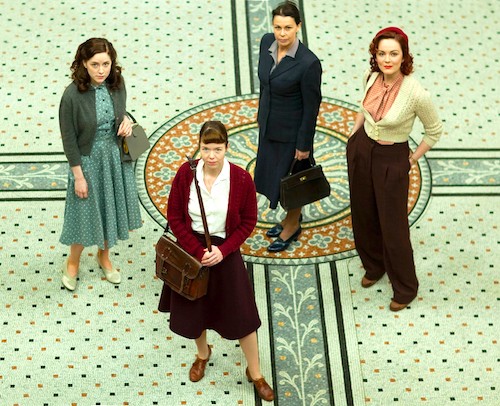By Joe Bendel. Judging solely on the American drive-by media’s coverage, one would assume Japan was nothing but a glowing wasteland after the March 11th earthquake and subsequent nuclear emergency. In contrast, the Japanese media was evidently restrained to a fault, leaving a vacuum for rumor, fear, and denial to run rampant. Rather than the all too familiar images of devastation, Nobuteru Uchida focuses on the messy uncertainties of the aftermath in Odayaka, which screens during the 2013 Tribeca Film Festival.
When the quake hit, Saeko’s husband Noboru was typically nowhere to be found. When he finally shows up, it is only to announce he is abandoning her and their daughter Kiyomi. Next door, Yukako’s husband Tatsuya also arrives well after the fact, having been toiling in his office, as per usual. Despite the government’s unconvincing assurances, both women become deeply concerned about Fukushima’s radiation. As neighbors and acquaintances belittle their worries, Saeko and Yukako agitation steadily increases. Saeko’s stress is understandably amplified by her husband’s desertion. Likewise, a recent painful episode Yukako and Tatsuya never properly dealt with acerbates her anxiety.
Filmed in a deliberately lo-fi, no frills style, Odayaka’s “you are there” vibe is often a genuinely uncomfortable to experience. This is no canned, made-for-TV movie building to a cheap triumph over adversity. Uchida portrays the emotional damage done to his characters in a relentlessly intimate fashion.Odayaka is a quiet film, but it stings.
 Nonetheless, along with Chen’s Will You Still Love Me Tomorrow, Odayaka lends this year’s festival some major star power. It might be hard to believe anyone could walk out on Kiki Sugino, the darling of Japanese indie cinema (often dubbed Japan’s Parker Posey), but she is truly devastating as Saeko. Always convincing and never overly showy, her portrayal of a mother coming apart at the seams is absolutely harrowing.
Nonetheless, along with Chen’s Will You Still Love Me Tomorrow, Odayaka lends this year’s festival some major star power. It might be hard to believe anyone could walk out on Kiki Sugino, the darling of Japanese indie cinema (often dubbed Japan’s Parker Posey), but she is truly devastating as Saeko. Always convincing and never overly showy, her portrayal of a mother coming apart at the seams is absolutely harrowing.
Likewise, Yukiko Shinohara plums some dark places as the distressed Yukako. In a way, it is a much more off-putting part. However, she truly lowers the film’s dramatic boom in key sequences down the stretch. Ami Watanabe’s Kiyoshi is also remarkably affecting and natural in scenes that might well be confusing for a young child. Indeed, Odayaka boasts a strong supporting cast from stem to stern, especially Makiko Watanabe, who becomes the face of rigid Japanese social conformity as the queen bee mother at Kiyoshi’s nursery school.
Odayaka is packed with scenes that resonate acutely. When Uchida holds up a mirror to Japanese society, it is not always pretty. Yet, Odayaka is a profoundly humanistic film, anchored by Sugino’s unforgettable work. Recommended for those who appreciate a tough human drama, Odayaka screens today (4/18), this Saturday (4/20), Wednesday (4/24), and next Saturday (4/27) as a Viewpoints selection of this year’s Tribeca Film Festival.
LFM GRADE: A-
Posted on April 18th, 2013 at 11:28am.
